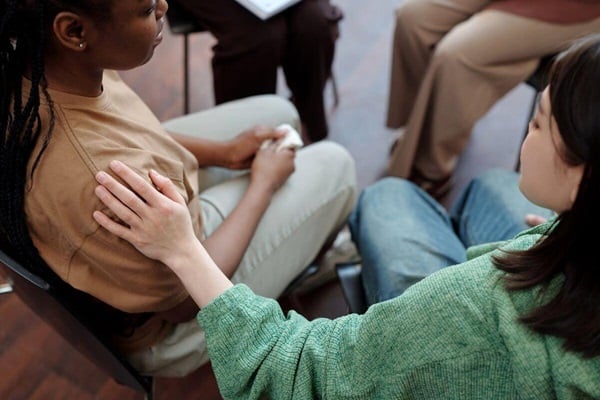Listen to this article:
Here’s the thing: living faithfully must go beyond how much we know and how many Bible verses we have memorized. All that is important, for sure. But as we may have been taught growing up: actions speak louder than words.
Knowing is only half the journey. What also matters just as much (if not more) is what we do with what know: how we love.
Faith leads us to do good things.
Sometimes doing good things leads to faith. But faith and actions rooted in love go together like… rice and kimchi (or whatever are solid pairs in your culture).One of the things (or guidelines) that help me live faithfully are John Wesley’s Three General Rules of Methodism. I believe the General Rules help me live out Jesus’ greatest commandments: Love God and love neighbor.
The first rule: Do no harm.
This rule helps me be less self-involved and self-absorbed because I have to be intentionally mindful of how my words and actions may impact the people around me. As Bishop Reuben Job wrote, “When I am determined to do no harm to you, I lose my fear of you; and I am able to see you and hear you more clearly.” If I am able to see you — in the manner of how God sees people — it is impossible to dehumanize you. I am able to see the Imago Dei (image of God) reflected in you. Perhaps we may never be friends, but what you no longer are to me is an enemy.
Doing no harm extends not to just interpersonal relationships. Doing no harm may point us to systems of oppression and discrimination and the work needed to dismantle such systems and advocating for justice and policies that protect and uplift the vulnerable. Doing no harm extends to Creation Care as well, reminding us that we are stewards of this earth and we should be faithful stewards by not harming God’s creation.
By committing to do no harm, we embody Jesus’s invitation to “love your neighbor as yourself” and work towards a world where all can thrive.
The second rule: Do good.
With the first rule, we can rationalize that we should do nothing in order to avoid doing any harm. “I’ll just stay home and pray and read the Bible so that I don’t risk harming anyone or anything.” But the rule of do good prevents us from being isolated from the world God so loves. We do good by engaging in acts of kindness, charity, love, and justice — intentionally seeking out opportunities to serve and love.
It reminds us and urges/invites/pushes/compels us to be a blessing — helping someone breathe a little bit easier, even if it’s for a second.
Final rule: Stay in love with God.
The final rule (as Bishop Job stated) is stay in love with God. This rule focuses on nurturing a deep relationship with God through spiritual disciplines such as worship, prayer, reading the Bible, fasting, and partaking in the sacraments. Basically, do the things that keep you in love with God (hence stay in love with God.)
Being intentional about staying in love with God continues to lead us to do no harm and do good. Spiritual disciplines are not just rituals, but an avenue for transformation helping deepen our love and commitment to follow Jesus’ teachings and examples. The more we love God, the more we are led to love our neighbors by doing no harm and doing good. The more we love our neighbors, the more we love God — and it’s a holy cycle. Each rule complements the others, giving us a holistic approach to living faithfully.
By practicing these three rules in our daily lives, we can create spaces and places where love, justice, and wholeness can be realized because it can (and does) guide us to be Christlike.
When we truly embody the teachings of Christ; when we intentionally set out to be imitators of Christ — being Christlike — the revolution becomes contagious and gives us more opportunities to make disciples of Christ for the transformation of the world.
Joseph Yoo is the author When the Saints Go Flying in. He is a West Coaster at heart contently living in Houston, Texas with his wife and son. He serves at Mosaic Church in Houston. Find more of his writing at josephyoo.com.





